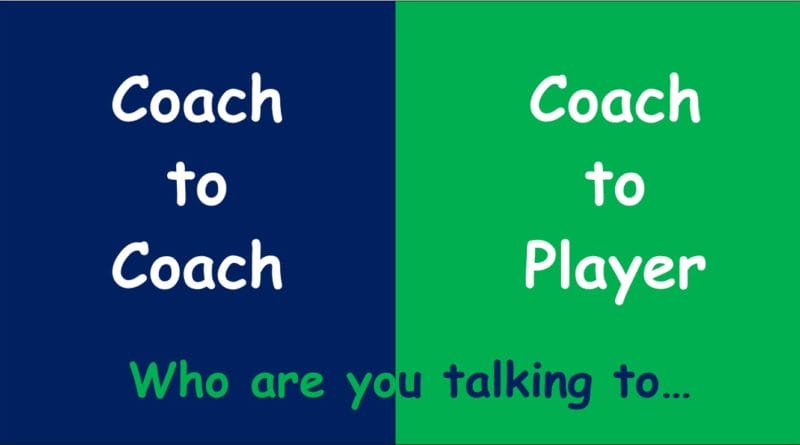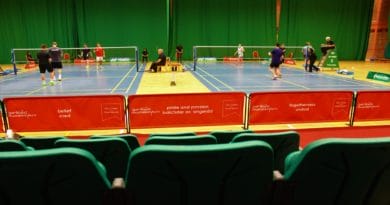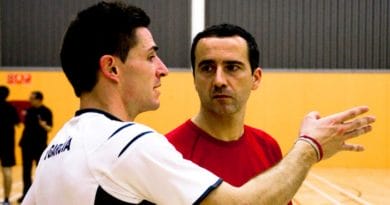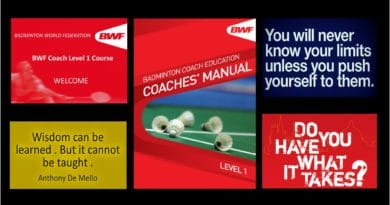16. Communication between Coaches is NOT the same as communication with Players
I’d never thought about this but yet I’d seen the consequences
The content of your communication really matters
I spoke to everyone (Players & Coaches) in the same way, giving the same information: detail and quantity
I was giving too much information to players, it was too detailed & often overly technical
I needed to realise who I was talking to if I was to be successful
– – – – – – – – – – – – –
My mistakes – the list!
The reality
The Information between Coach to Coach
What do I do now ?
Working with Expert Players
Summary
– – – – – – – — – – – –
My mistake was believing that…
(I found that none were true!)
- Players needed to understand as much as I did 🙁
- The more detail they had, the easier it would be for them to learn 🙁
- The manual I had (after just passing my award) contained all the information players needed to know 🙁
- It was best that they knew everything at the beginning: the reasons why, how all the parts linked, the coaching details, etc 🙁
- Players were interested in knowing as much as possible
I found that very few of my beliefs were true
& to help development, sometimes it was best that players didn’t know
– – – – – – – – – – – – –
The reality
- Players weren’t interested in much of the information: they just wanted ideas on how to improve, what tasks to try and games to play
- Players reached mental saturation sooner if I gave information at every stage (read about saturation here), it didn’t help
- Players complained that they would rather ‘do’ than listen
- Very few players asked for details, sometimes they asked for the ‘why’: “Tell me why that will help me”
- The next session they couldn’t remember much of the information. Especially the ‘important’ coach type information I’d given
- It is sometimes different with Expert Players … Jump the end of the post to read more.
– – – – – – – – – – – – –
The Information between Coach to Coach
There certainly is information that Badminton Coaches should communicate with each other. Without coaches talking, sharing and enquiring it will be very tough for any form of effective coach development.
Communication between Coaches is vital, yes you could decide that you have nothing to share or don’t need to hear other viewpoints, that’s your choice, but I believe that will certainly limit you!
I’ve often found that other coaches are surprised that I want to talk with them about coaching subjects. How would you react if someone asked you to discuss badminton practice, how it’s structured, and the aspects that you think are important?
I’ll write another post about how to structure communication between coaches, and how I’ve changed over the years. Communications between Coach to Coach are certainly different than between Coach to Player
Why not email me with tips concerning how you think coaches should best communicate with each other
I’ll be grateful for any thoughts
– – – – – – – – – – – – –
The Information between Coach to Player
There is information that players need and plenty that they don’t
There is also information that they need but sometimes not at that stage in their development
Then there is information they need at one stage but need to ‘forget’ in later stages
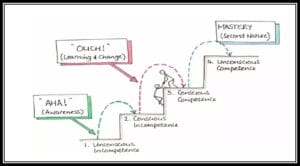
Communication between Coaches is NOT the same as communication with Players
– – – – – – – – – – – – –
What do I do now when coaching players?
- I think about how to reduce everything: the things I say, the amount of detail included, and the length of my sentences. If I spoke with another badminton coach it could take 5 mins of explanation but just 20 seconds with a player.
- I listen to my words and try to hear when I sound like a Coach giving coaching information rather than information to help the player in front of me. Am I sounding like page 35 of the coaching manual? 🙂
- If I’m asked a question by a player I may decide to not answer with information (even if I have it). Rather, I’ll either ask them (a carefully crafted question) what they think or set up a practice situation to explore the different answers/possibilities. Or, we will ask another player in the group.
- Sometimes I’ll respond with – “I’m not sure about that, it depends“ and then change teh practice so that it offers an opportunity for them to try and experience their own question. e.g. “hey coach what’s the best footwork for moving into the backhand net area?“
- I will stop reinforcing the technical aspects the player is doing. I’ll praise the outcome rather than the technical methods that achieved it e.g. “Wow did you hear the sound of that slice“, rather than comment on the grip and the hitting action.
- I don’t mind if the process appears to take longer. It really isn’t that much longer when you think about all the hours we are on the court. Plus the difference in long-term development is huge, players seem to perform without me having to repeat the technical information.
- I certainly will not ask “why did that work” when the player performs something special! What do think are the reasons for not drawing their attention to technical details when they performed something well (successfully)?
- I certainly don’t list all the ‘hashtags’ of the technical components to remind them of how they achieved what they just did.
I’d follow all the above points with novice junior players as well as senior players
For me, nos. 4, 6 and 7 are important once you have stopped doing no.2 🙂
– – – – – – – – – – – – –
Working with Expert Players
As always in coaching there are times when you need to be prepared to adapt and possibly break the ‘rules’.
Communication with Expert Players is one of these times when you need to possibly adapt.
Whilst it’s true that too much information (quality and detail) can cause problems with a players’ learning and less telling & direction should be replaced with suggestions and well-designed practice.
However, this isn’t always true with some or all expert players.
Simply: some experts can accept specific detailed information, process it, use it, and all without any issues in performance.
Be aware that not all experts will want to know ‘everything’,
some experts may only want hints and tips at that moment
– – – – – – – – – – – – –
Summary
- Differentiate how you talk with Players and Badminton Coaches
- Not everyone in front of you needs to know everything you do
- Knowing everything doesn’t always increase performance.
- In fact, it may limit development
- Be happy that certain aspects can be forgotten
Think about who is listening
Talking with Coaches is different than talking with players

